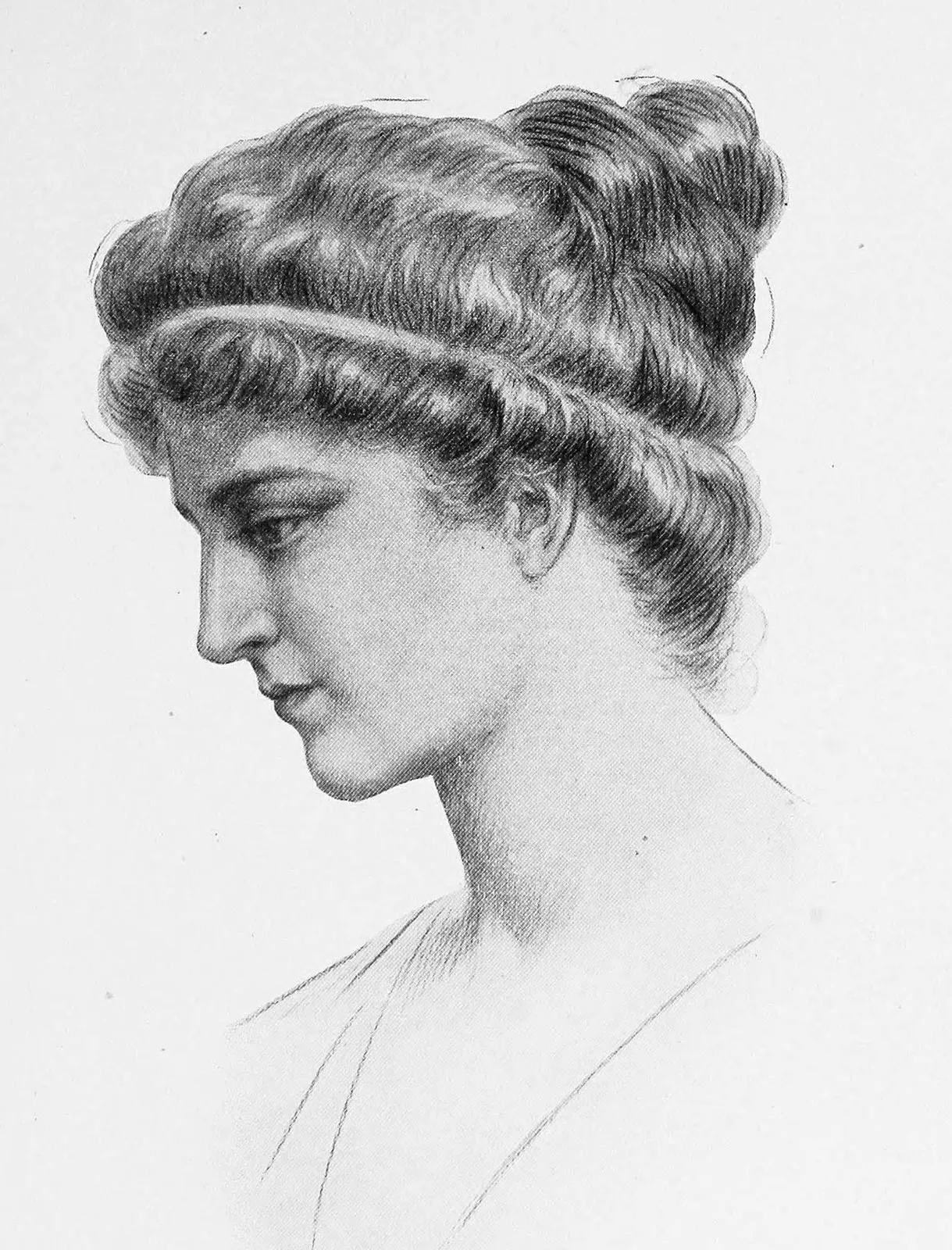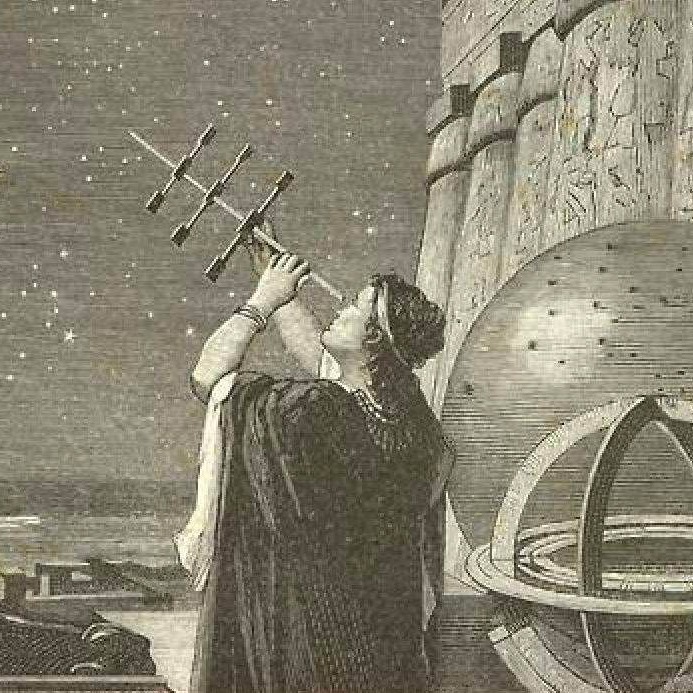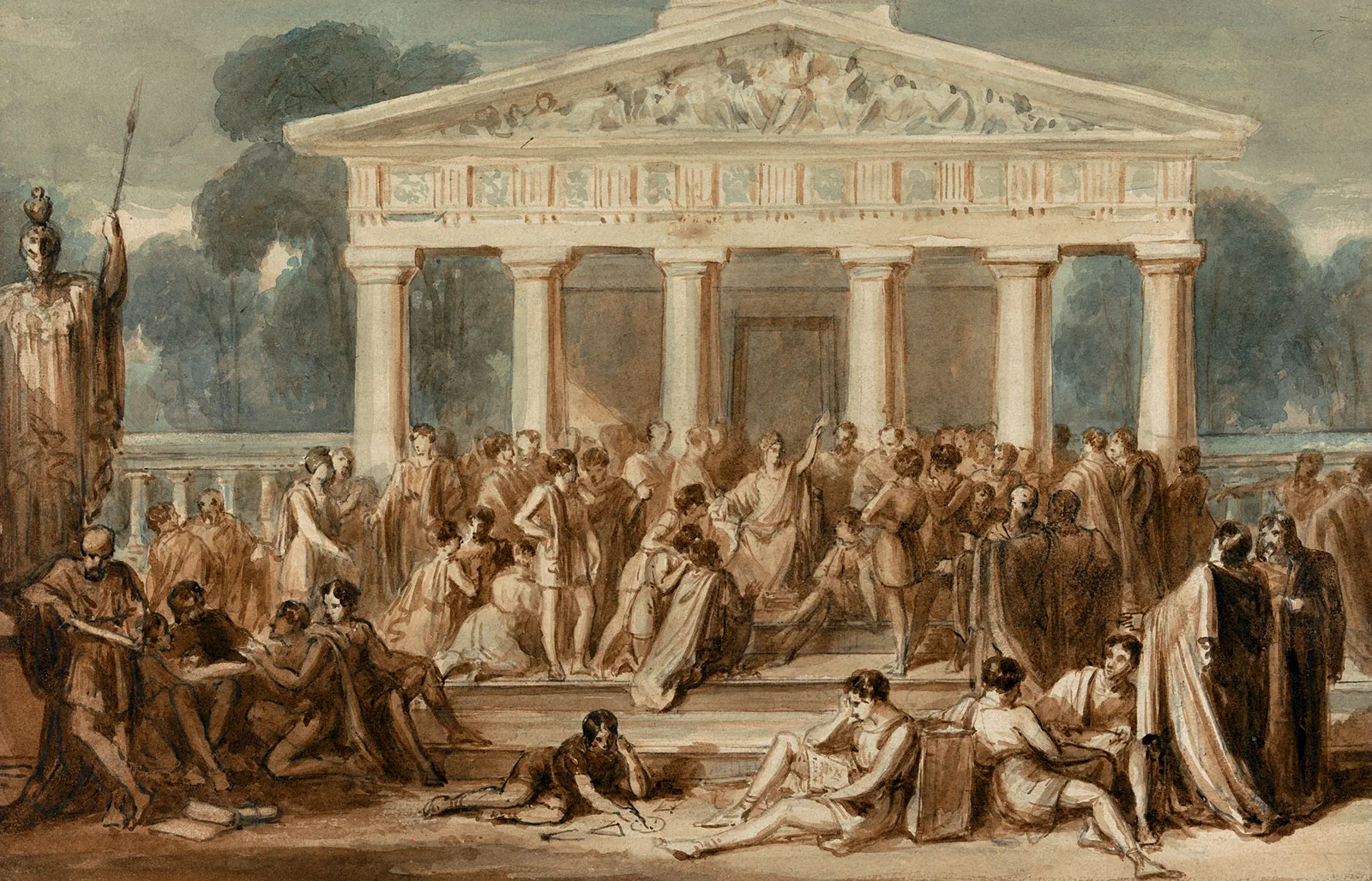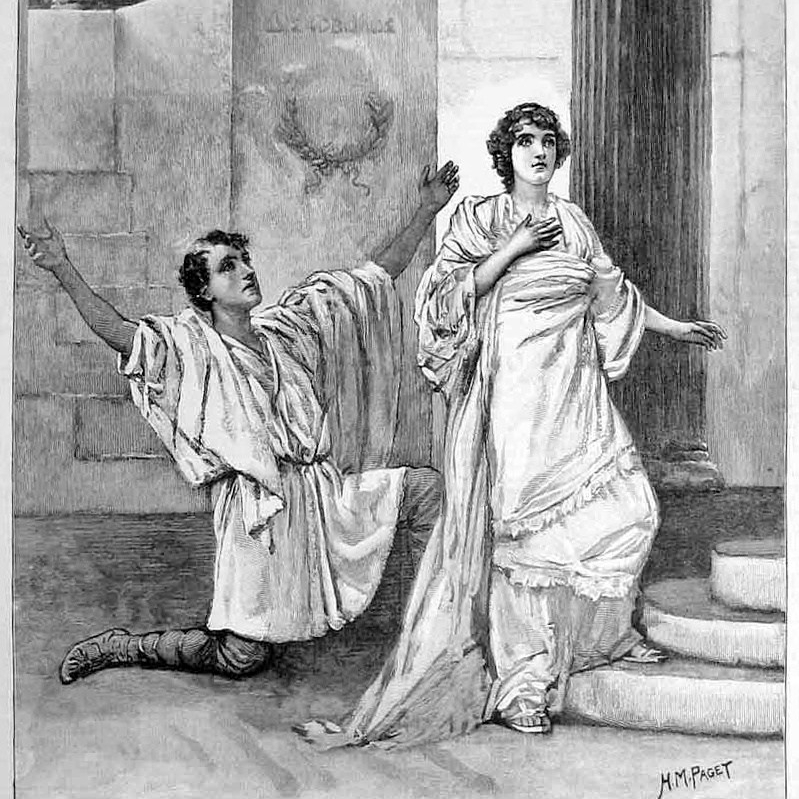
Hypatia
Ancient Genius & ”Martyr of Philosophy”
Hypatia is widely (but incorrectly) thought to be the first female mathematician in the world and is considered to be one of the foremost intellectuals and philosophers in the entire Roman empire. So how come we don’t list her name when we talk about Plato and Aristotle? Also, why does her name come up when you google search for “witches in history”?! Unfortunately, politics, as usual.
In her home of Alexandria, religious and political tensions had reached a fevered pitch, and her unique position of wise advisor ends up putting her in the crossfire between fighting parties. Unfortunately, the reason Hypatia makes the history books is because of her brutal murder at the hands of the Christian mobs. Even though her murderers tried to erase her from history, enough of her astounding work survived through the letters and journals of her students and colleagues and we now know the extent of her genius. A few historians even think that she beat Kepler to it discovering the laws of planetary motion! Though the evidence for that is slim – it’s pretty cool to think about.
Hypatia’s story is definitely one that you won’t want to miss!!
“Donning [the robe of a scholar], the lady made appearances around the center of the city, expounding in public to those willing to listen on Plato or Aristotle”
“… a person so renowned, her reputation seemed literally incredible. We have seen and heard for ourselves she who honorably presides over the mysteries of philosophy.”
“There was a woman at Alexandria named Hypatia, daughter of the philosopher Theon, who made such attainments in literature and science, as to far surpass all the philosophers of her own time. Having succeeded to the school of Plato and Plotinus, she explained the principles of philosophy to her auditors, many of whom came from a distance to receive her instructions. On account of the self-possession and ease of manner which she had acquired in consequence of the cultivation of her mind, she not infrequently appeared in public in the presence of the magistrates. Neither did she feel abashed in going to an assembly of men. For all men on account of her extraordinary dignity and virtue admired her the more”




















